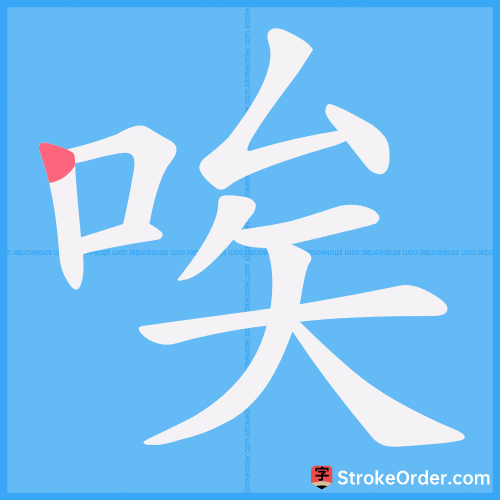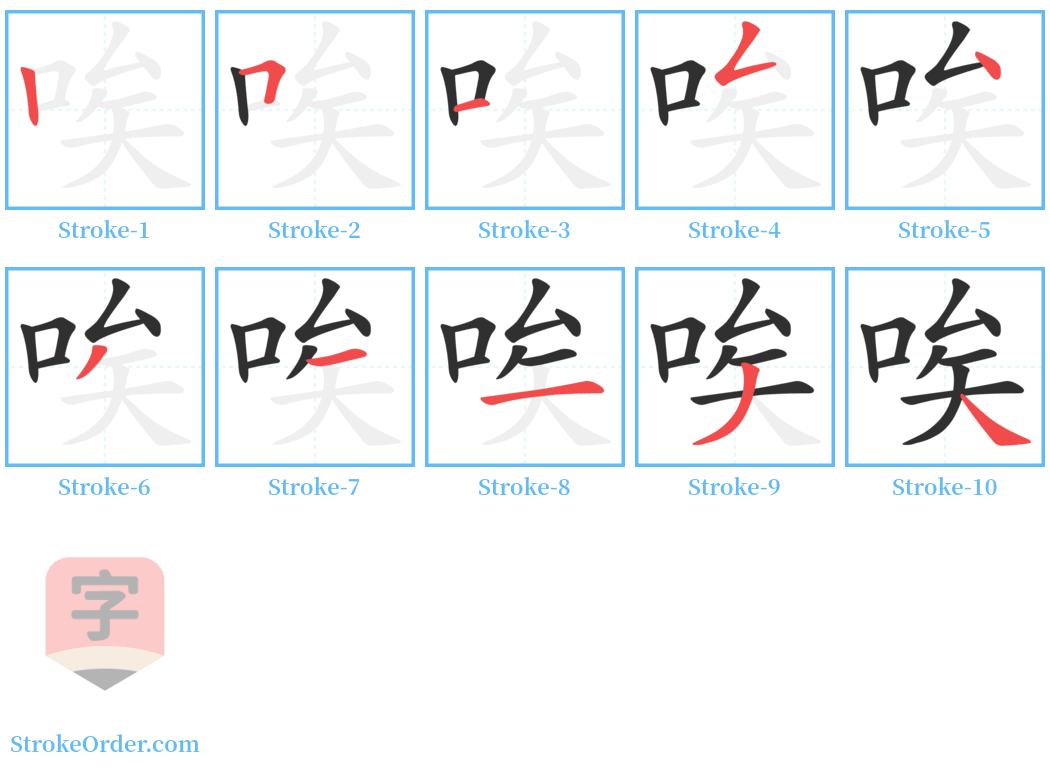唉 Stroke Order
Animated Stroke Order of 唉

Stroke Order Diagrams for 唉

Step-by-Step Handwriting Guide for 唉

Learn to Write Chinese Characters with Video Tutorials
Watch the video of writing the Chinese character "唉", learn the correct stroke order (笔顺) of the character "唉", and master the standard way of writing the character "唉".
Free Printable Handwriting Practice with Stroke Order: 唉
Printable Writing Practice Worksheet of "唉" in Portrait Orientation (Tian Zi Ge)

Printable Writing Practice Worksheet of "唉" in Landscape Orientation (Tian Zi Ge)

Information of 唉
Pinyin
ài、 āi
Radical
口
Strokes
10 strokes
Usage
★★★★★
Definition
an interjection / to express realization or agreement (yes, oh, right, etc), alas / oh dear
唉 [āi]
1. Interjection, indicating agreement or acknowledgment.
2. A sound expressing a sigh.
唉 [āi]
1. Interjection used to show sadness or regret (e.g., oh, well).
2. To express sympathy (e.g., alas).
唉 [āi]
1. The original meaning: to signify agreement.
2. Etymology: A phonetic compound, derived from the mouth (口) with the sound "矣".
3. Related meanings:
a. Same as the original meaning (en: yes; well).
b. Borrowed to mean "eh" to express a sigh (en: alas).
4. See also ài.
唉 [āi]
1. Indicates sadness or regret (en: oh, well).
Example: 唉! 他不小心摔伤了 (Oh! He unfortunately hurt himself).
2. Indicates sympathy (en: alas).
Example: 唉, 他病得怪可怜的! (Alas, he is terribly ill!).
3. See also āi.
唉 [āi]
1. Interjection, indicating sadness or regret.
2. Interjection, indicating sadness or regret: 唉, 病了几天,把事都耽误了 (Alas, I’ve been ill for several days and have delayed everything).
唉 [āi]
1. Interjection indicating sadness or regret (e.g., oh, well). Example: 唉!他不小心摔伤了 (Oh! He accidentally injured himself).
2. Indicates sympathy (e.g., alas). Example: 唉,他病得怪可怜的!(Alas, he is very pitifully ill!).
3. See also āi.
Input Method for 唉
Pinyin
ai4
Wubi
kctd
Cangjie
riok
Zhengma
jzma
Four Corner
63084
Unicode
U+5509
Same Pronunciation Characters